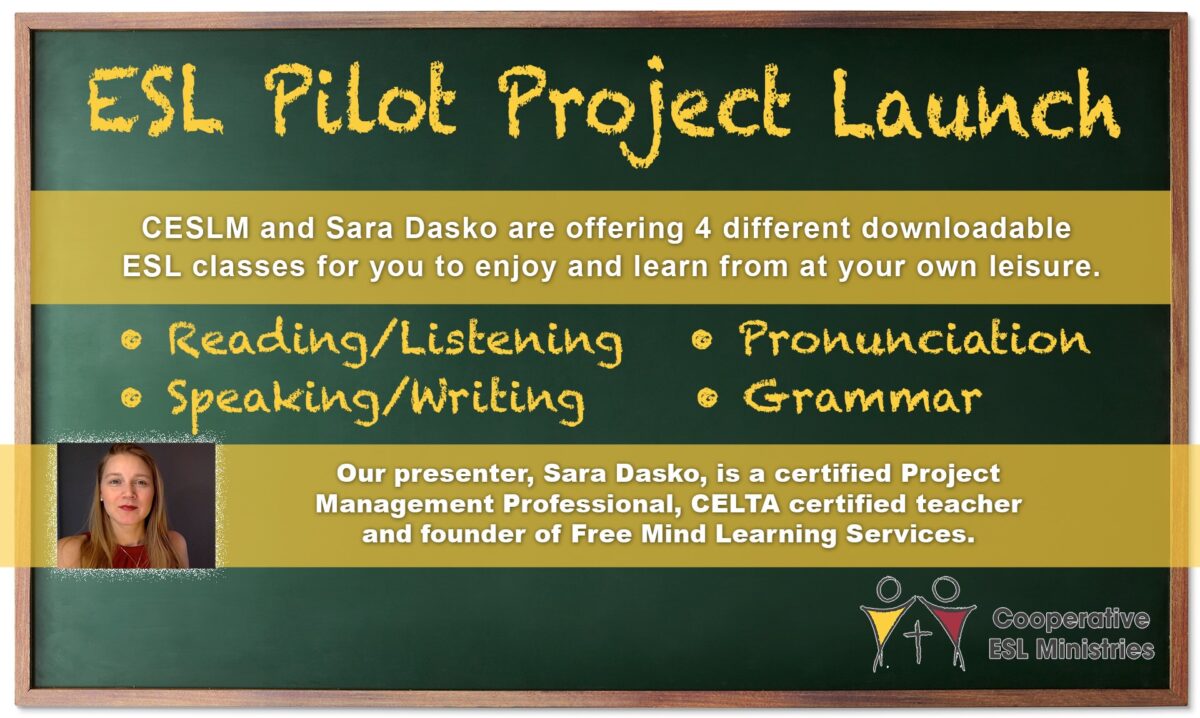May I Ask You A Question
— Allan Pole
 Someone recently asked me what I thought they should do about a situation they faced. The answer seemed obvious to me, with several Bible passages coming to mind—which I had just shared with this person. I bit my tongue, resisting the urge to quote the Scripture and spoon-feed the answer. Instead, I counselled to seek the Lord about how He would handle the situation.
Watch and listen for “teachable moments” in those you influence. Are people really asking for your input? If they are, what kinds of questions do they ask? Listen closely. Do you get the sense they are prepared to make some adjustments, if necessary? Or, are they simply looking for people to agree with them?
American author John Steinbeck (1902-1968) quipped, “You know how advice is. You only want it if it agrees with what you wanted to do anyway.”
I have spent far too much time and energy trying to counsel people who keep asking questions until they find someone who agrees with them. What happens when you suggest to someone an adjustment in thinking, speech and/or behaviour? Do you sense openness or resistance? Do you get a red light, yellow light or green light?
Beware of becoming an incurable problem-solver. People more frequently need a listening ear and probing questions, rather than a solution to their problems.
Kings and Queens would come from far and wide to hear King Solomon’s wisdom, yet he writes in Proverbs 20:5, “The purposes of a man’s heart are deep waters, but a man of understanding draws them out.” —NIV
Mark Gregston, of Heartlight Ministries, has some great advice in “Parenting for Today’s Teens.” I’ve learned from him, and from a coaching course at CoachNet, to ask open-ended questions.
Examples of open-ended questions are:
How do you feel about this challenge you face?
What are your options for solutions?
Which option do you think is best?
Why do you feel this option is best?
Use closed-ended questions sparingly. If someone can answer a question with only “yes” or “no”, then it’s a closed-ended question. Beware of leading questions—attempts to put words in someone else’s mouth.
MediaCollege.com explains it this way at https://www.mediacollege.com/journalism/interviews/leading-questions.html.
A leading question is a question which subtly prompts the respondent to answer in a particular way. Leading questions are generally undesirable as they result in false or slanted information. For example:
Do you have any problems with your boss? This question prompts the person to question their employment relationship. In a subtle way it raises the prospect that there are problems.
Tell me about your relationship with your boss. This question does not seek any judgment and there is less implication that there might be something wrong with the relationship.
The difference in the above example is minor but in some situations it can be more important. For example, in a court case:
How fast was the red car going when it smashed into the blue car? This question implies that the red car was at fault, and the word “smashed” implies a high speed.
How fast was each car going when the accident happened? This question does not assign any blame or pre-judgment.
(MediaCollege.com, 2018)
Listen in on the conversation in Matthew 19:16-24:
Now a man came up to Jesus and asked, “Teacher, what good thing must I do to get eternal life?”
“Why do you ask me about what is good?” Jesus replied. “There is only One who is good. If you want to enter life, obey the commandments.”
“Which ones?” the man inquired.
Jesus replied, “‘Do not murder, do not commit adultery, do not steal, do not give false testimony, honor your father and mother,’ and ‘love your neighbor as yourself.'”
“All these I have kept,” the young man said. “What do I still lack?”
Jesus answered, “If you want to be perfect, go, sell your possessions and give to the poor, and you will have treasure in heaven. Then come, follow me.”
When the young man heard this, he went away sad, because he had great wealth. Then Jesus said to his disciples, “I tell you the truth, it is hard for a rich man to enter the kingdom of heaven. Again I tell you, it is easier for a camel to go through the eye of a needle than for a rich man to enter the kingdom of God.” —NIV
How would you have felt if you were Jesus watching this young man walk away? Disappointed? Angry? Frustrated? I sense disappointment in Jesus, but I don’t sense anger or frustration.
Frustration is a sign of a blocked goal. Do you feel yourself getting frustrated when someone isn’t listening to your advice? If yes, what are you trying to accomplish in this conversation or in this relationship? If your goal is to get people to do what you think they should do, your frustration level will be high, and your relationships will be filled with tension. If your goal is to be obedient to the Lord and say what He wants you to say, when He wants you to say it, then you and your relationships will be filled with peace. As a result, you will become a more inviting person.
The next time you are ready to give advice, stop and ask yourself, “Does this person really want to know what I think?” Remember, to build connections with others and help them grow—listen first, then ask open-ended questions to draw them out.
Someone recently asked me what I thought they should do about a situation they faced. The answer seemed obvious to me, with several Bible passages coming to mind—which I had just shared with this person. I bit my tongue, resisting the urge to quote the Scripture and spoon-feed the answer. Instead, I counselled to seek the Lord about how He would handle the situation.
Watch and listen for “teachable moments” in those you influence. Are people really asking for your input? If they are, what kinds of questions do they ask? Listen closely. Do you get the sense they are prepared to make some adjustments, if necessary? Or, are they simply looking for people to agree with them?
American author John Steinbeck (1902-1968) quipped, “You know how advice is. You only want it if it agrees with what you wanted to do anyway.”
I have spent far too much time and energy trying to counsel people who keep asking questions until they find someone who agrees with them. What happens when you suggest to someone an adjustment in thinking, speech and/or behaviour? Do you sense openness or resistance? Do you get a red light, yellow light or green light?
Beware of becoming an incurable problem-solver. People more frequently need a listening ear and probing questions, rather than a solution to their problems.
Kings and Queens would come from far and wide to hear King Solomon’s wisdom, yet he writes in Proverbs 20:5, “The purposes of a man’s heart are deep waters, but a man of understanding draws them out.” —NIV
Mark Gregston, of Heartlight Ministries, has some great advice in “Parenting for Today’s Teens.” I’ve learned from him, and from a coaching course at CoachNet, to ask open-ended questions.
Examples of open-ended questions are:
How do you feel about this challenge you face?
What are your options for solutions?
Which option do you think is best?
Why do you feel this option is best?
Use closed-ended questions sparingly. If someone can answer a question with only “yes” or “no”, then it’s a closed-ended question. Beware of leading questions—attempts to put words in someone else’s mouth.
MediaCollege.com explains it this way at https://www.mediacollege.com/journalism/interviews/leading-questions.html.
A leading question is a question which subtly prompts the respondent to answer in a particular way. Leading questions are generally undesirable as they result in false or slanted information. For example:
Do you have any problems with your boss? This question prompts the person to question their employment relationship. In a subtle way it raises the prospect that there are problems.
Tell me about your relationship with your boss. This question does not seek any judgment and there is less implication that there might be something wrong with the relationship.
The difference in the above example is minor but in some situations it can be more important. For example, in a court case:
How fast was the red car going when it smashed into the blue car? This question implies that the red car was at fault, and the word “smashed” implies a high speed.
How fast was each car going when the accident happened? This question does not assign any blame or pre-judgment.
(MediaCollege.com, 2018)
Listen in on the conversation in Matthew 19:16-24:
Now a man came up to Jesus and asked, “Teacher, what good thing must I do to get eternal life?”
“Why do you ask me about what is good?” Jesus replied. “There is only One who is good. If you want to enter life, obey the commandments.”
“Which ones?” the man inquired.
Jesus replied, “‘Do not murder, do not commit adultery, do not steal, do not give false testimony, honor your father and mother,’ and ‘love your neighbor as yourself.'”
“All these I have kept,” the young man said. “What do I still lack?”
Jesus answered, “If you want to be perfect, go, sell your possessions and give to the poor, and you will have treasure in heaven. Then come, follow me.”
When the young man heard this, he went away sad, because he had great wealth. Then Jesus said to his disciples, “I tell you the truth, it is hard for a rich man to enter the kingdom of heaven. Again I tell you, it is easier for a camel to go through the eye of a needle than for a rich man to enter the kingdom of God.” —NIV
How would you have felt if you were Jesus watching this young man walk away? Disappointed? Angry? Frustrated? I sense disappointment in Jesus, but I don’t sense anger or frustration.
Frustration is a sign of a blocked goal. Do you feel yourself getting frustrated when someone isn’t listening to your advice? If yes, what are you trying to accomplish in this conversation or in this relationship? If your goal is to get people to do what you think they should do, your frustration level will be high, and your relationships will be filled with tension. If your goal is to be obedient to the Lord and say what He wants you to say, when He wants you to say it, then you and your relationships will be filled with peace. As a result, you will become a more inviting person.
The next time you are ready to give advice, stop and ask yourself, “Does this person really want to know what I think?” Remember, to build connections with others and help them grow—listen first, then ask open-ended questions to draw them out.
 Allan Pole
CESLM President
al@eslcooperative.ca
Allan Pole
CESLM President
al@eslcooperative.ca 






























































I really enjoyed and appreciated what you shared Al. You gave me some good things to think about when people come to me with questions. Thanks.
Listening and asking those curious questions is not where I shine, thank you for this encouragement. Teaching is such a busy job where the curtailing of irrelevant or evasive or wrong responses is often part of the job. It takes poise and Spirit of God’s prompting to spent important moments listening and asking open ended questions.